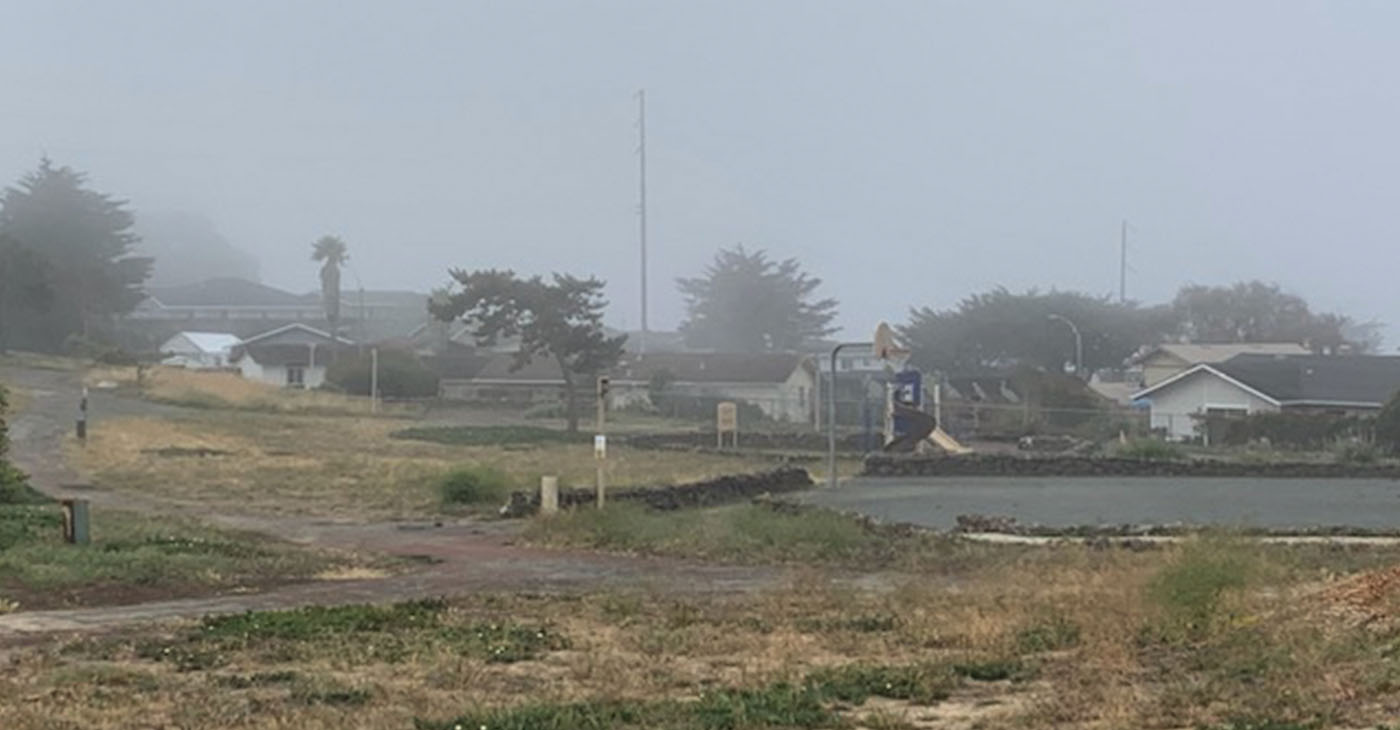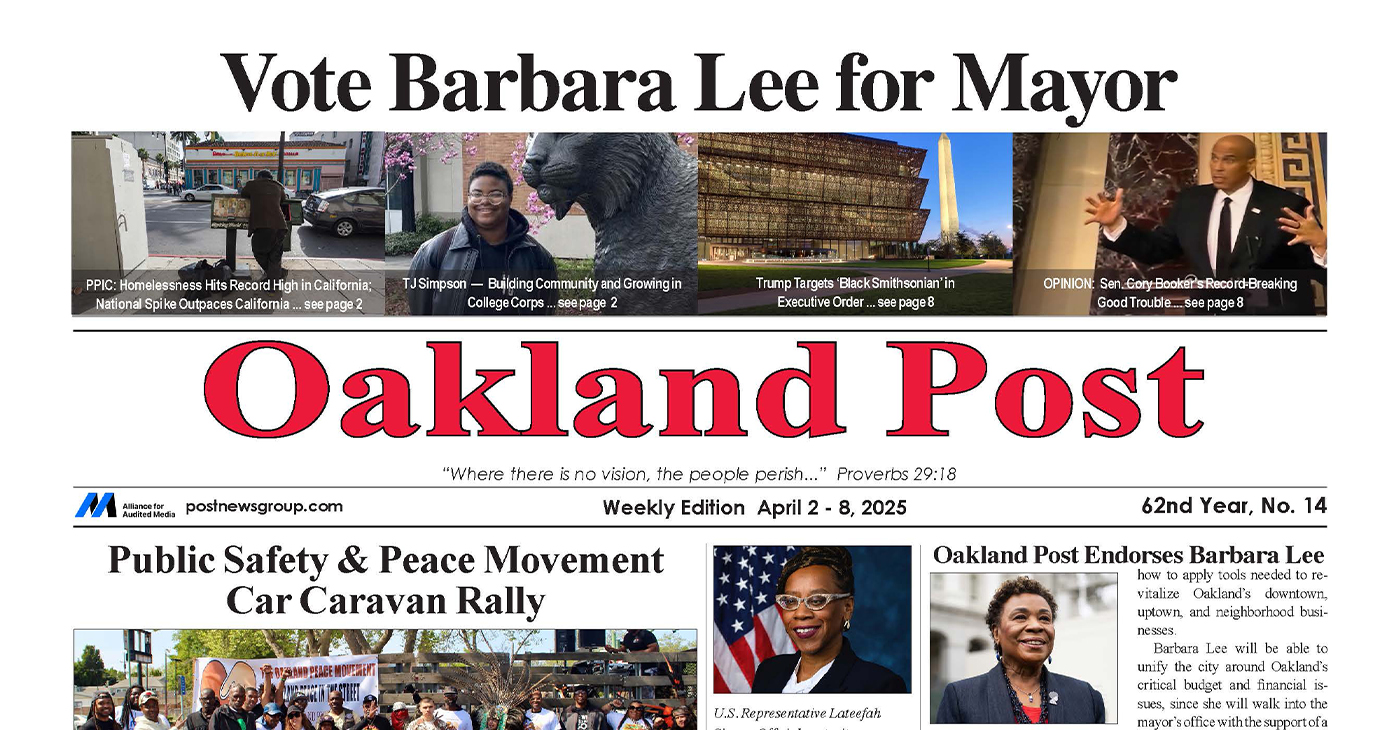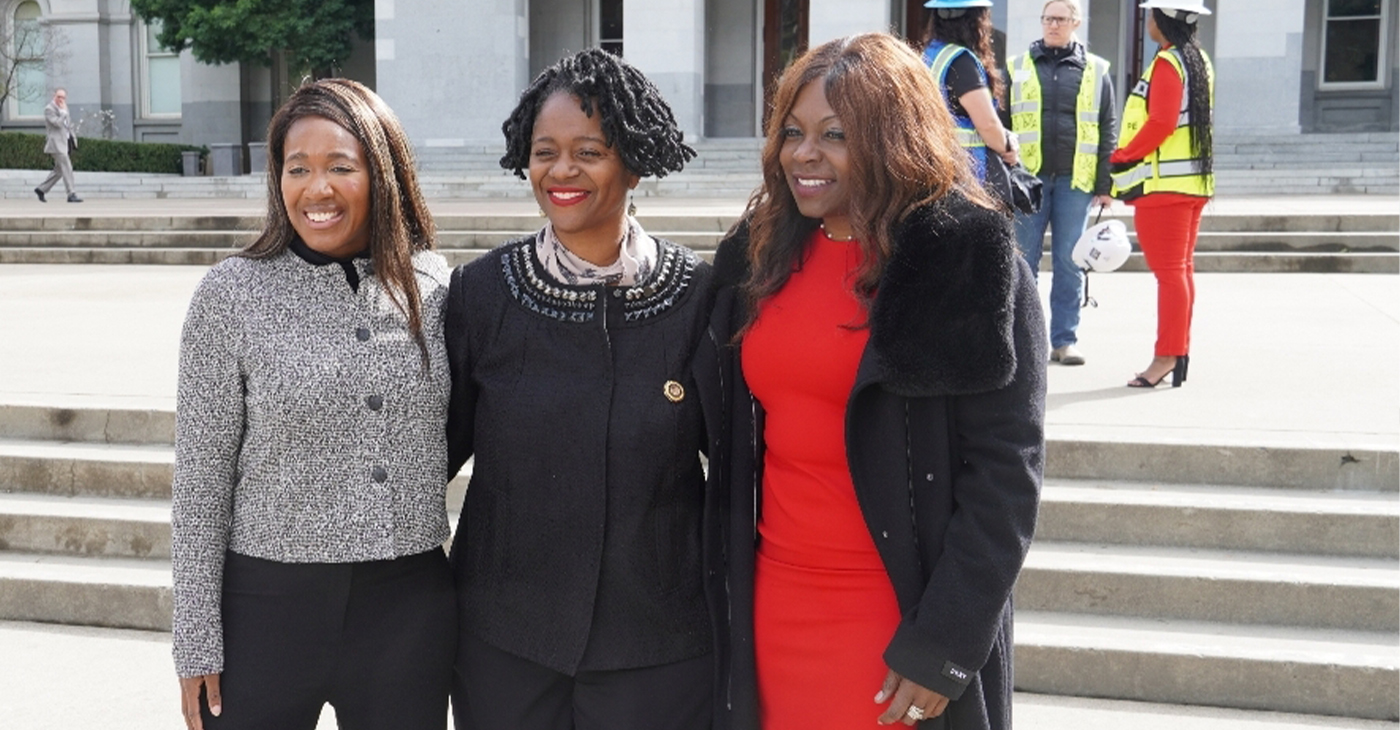California Black Media
Calif. Park Advocates Want More Green Spaces in Black Neighborhoods
Some advocates say the state is not developing and maintaining community recreational facilities equally. They point out that green spaces in neighborhoods where Black Californians live remain underfunded even though the state has invested billions of dollars over the last decade-and-a-half to improve them.

McKenzie Jackson
California Black Media
Some advocates say the state is not developing and maintaining community recreational facilities equally. They point out that green spaces in neighborhoods where Black Californians live remain underfunded even though the state has invested billions of dollars over the last decade-and-a-half to improve them.
“They need to have a system to get money to the Black communities,” said Danny J. Bakewell, Sr., a Los Angeles-based businessman, civil rights activist, and philanthropist.
“They will tell you they have a system to make sure it’s not unfair, but the way they do the funding is not fair,” continued Bakewell, the only Black member of the California State Park and Recreation Commission. “Black people are not getting that money.”
Bakewell expressed concerns the scoring system employed by the California Department of Parks and Recreation’s Statewide Park Development and Community Revitalization Program (SPP) to determine how funds are distributed does not benefit African American cities and neighborhoods.
Defending its operations and application process, the SPP says giving all Golden State residents access to open outdoor spaces is its main goal.
State Parks Deputy Director for Community Engagement Sedrick Mitchell said SPP has, “placed green spaces in places where they weren’t before.”
SPP’s grants initiative, according to Mitchell, is the largest parks-related program in California history. It has funded $1.16 billion in construction, expansion, or renovation of 299 parks since 2009.
Applications are evaluated in a competitive process. Project approval is determined by a scoring system that awards a maximum of 100 points.
SPP says, the main qualifying criterion for funding is the ratio of park acreage per 1,000 residents living near the park, the median household income of those residents, and the number of residents living below the poverty line.
“If you have zero acres, you are likely to get the most points,” Mitchell explained. “If you have two acres, you are going to get less. The law requires us to look at two things — acres per 1,000 and income,”
Bakewell, who has been a parks commissioner for two years, said Seaside, a small Monterey Bay city with a Black mayor and a significant Black population should have received SPP funds.
Seaside Recreation Services Director Dan Meewis said the city has decades-old parks with deteriorating sidewalks.
“It’s a centralized hub for kids from a variety of neighborhoods,” he explained. “The walking trails throughout the parks are horrendous, tripping hazards.
The city’s two applications for SPP funding, the latest in 2021, were denied.
Mitchell says, state legislation directed the Parks’ initiative to prioritize funding for the creation of new parks over rehabilitations.
Mitchell and his staff met with Bakewell, Meewis, and Seaside Mayor Ian Oglesby to review the city’s denied proposals. Meews said he wished Seaside would have received guidance on how to improve their bid before their second application was rejected.
Mitchell said an area’s racial or ethnic makeup plays no part in how SPP monies are dispersed.
Bakewell wants to do more but said the commission he serves on doesn’t have a say in which projects are funded.
“Black communities at a minimum need stellar parks and recreation,” said Bakewell.
Activism
Oakland Post: Week of April 2 – 8, 2025
The printed Weekly Edition of the Oakland Post: Week of April 2 – 8, 2025

To enlarge your view of this issue, use the slider, magnifying glass icon or full page icon in the lower right corner of the browser window.
Activism
Oakland Post: Week of March 28 – April 1, 2025
The printed Weekly Edition of the Oakland Post: Week of March 28 – April 1, 2025

To enlarge your view of this issue, use the slider, magnifying glass icon or full page icon in the lower right corner of the browser window.
Activism
Sen. Lola Smallwood-Cuevas Honors California Women in Construction with State Proclamation, Policy Ideas
“Women play an important role in building our communities, yet they remain vastly underrepresented in the construction industry,” Smallwood-Cuevas stated. “This resolution not only recognizes their incredible contributions but also the need to break barriers — like gender discrimination.

By Antonio Ray Harvey, California Black Media
To honor Women in Construction Week, Sen. Lola Smallwood-Cuevas (D-Los Angeles), a member of the California Legislative Black Caucus (CLBC), introduced Senate Concurrent Resolution (SCR) 30 in the State Legislature on March 6. This resolution pays tribute to women and highlights their contributions to the building industry.
The measure designates March 2, 2025, to March 8, 2025, as Women in Construction Week in California. It passed 34-0 on the Senate floor.
“Women play an important role in building our communities, yet they remain vastly underrepresented in the construction industry,” Smallwood-Cuevas stated. “This resolution not only recognizes their incredible contributions but also the need to break barriers — like gender discrimination.
Authored by Assemblymember Liz Ortega (D-San Leandro), another bill, Assembly Concurrent Resolution (ACR) 28, also recognized women in the construction industry.
The resolution advanced out of the Assembly Committee on Rules with a 10-0 vote.
The weeklong event coincides with the National Association of Women In Construction (NAWIC) celebration that started in 1998 and has grown and expanded every year since.
The same week in front of the State Capitol, Smallwood, Lt. Gov. Eleni Kounalakis, Assemblymember Josh Hoover (R-Folsom), and Assemblymember Maggie Krell (D-Sacramento), attended a brunch organized by a local chapter of NAWIC.
Two of the guest speakers were Dr. Giovanna Brasfield, CEO of Los Angeles-based Brasfield and Associates, and Jennifer Todd, President and Founder of LMS General Contractors.
Todd is the youngest Black woman to receive a California’s Contractors State License Board (A) General Engineering license. An advocate for women of different backgrounds, Todd she said she has been a woman in construction for the last 16 years despite going through some trying times.
A graduate of Arizona State University’s’ Sandra Day O’Connor College of Law, in 2009 Todd created an apprenticeship training program, A Greener Tomorrow, designed toward the advancement of unemployed and underemployed people of color.
“I always say, ‘I love an industry that doesn’t love me back,’” Todd said. “Being young, female and minority, I am often in spaces where people don’t look like me, they don’t reflect my values, they don’t reflect my experiences, and I so persevere in spite of it all.”
According to the U.S. Bureau of Labor Statistics, only 11.2% of the construction workforce across the country are female. Overall, 87.3% of the female construction workers are White, 35.1% are Latinas, 2.1% are Asians, and 6.5% are Black women, the report reveals.
The National Association of Home Builders reported that as of 2022, the states with the largest number of women working in construction were Texas (137,000), California (135,000) and Florida (119,000). The three states alone represent 30% of all women employed in the industry.
Sen. Susan Rubio (D-Baldwin Park) and the California Legislative Women’s Caucus supported Smallwood-Cuevas’ SCR 30 and requested that more energy be poured into bringing awareness to the severe gender gap in the construction field.
“The construction trade are a proven path to a solid career. and we have an ongoing shortage, and this is a time for us to do better breaking down the barriers to help the people get into this sector,” Rubio said.
-

 Activism2 weeks ago
Activism2 weeks agoWe Fought on Opposite Sides of the Sheng Thao Recall. Here’s Why We’re Uniting Behind Barbara Lee for Oakland Mayor
-

 #NNPA BlackPress3 weeks ago
#NNPA BlackPress3 weeks agoRev. Dr. Jamal Bryant’s Black Church Target Boycott Mobilizes 150,000
-

 Activism3 weeks ago
Activism3 weeks agoSan Francisco Is Investing Millions to Address Food Insecurity. Is Oakland Doing the Same?
-

 #NNPA BlackPress3 weeks ago
#NNPA BlackPress3 weeks agoRecently Approved Budget Plan Favors Wealthy, Slashes Aid to Low-Income Americans
-

 Activism2 weeks ago
Activism2 weeks agoFaith Leaders Back Barbara Lee for Mayor, Criticize Candidate Loren Taylor for Dishonest Campaigning
-

 Activism3 weeks ago
Activism3 weeks agoOakland Post: Week of March 12 – 18, 2025
-

 Activism2 weeks ago
Activism2 weeks agoGroup Takes First Steps to Recall District Attorney Diana Becton
-

 #NNPA BlackPress3 weeks ago
#NNPA BlackPress3 weeks agoPRESS ROOM: The Urban One Podcast Network Announces Los Angeles Wildfires Podcast, ‘Altadena: After the Fire’


















































